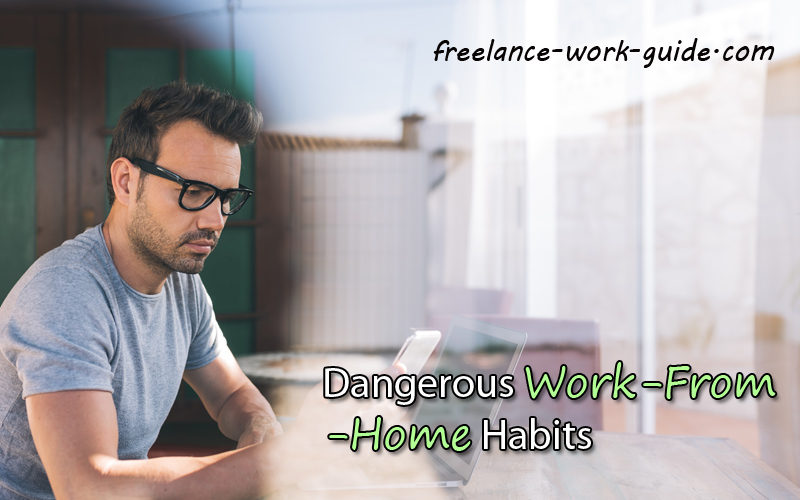
Companies everywhere have come to embrace the concept of employees working from their homes. According to a recent Review42 report, at least 74% of companies said yes to the transition of their employees from traditional offices to household platforms instead. Read more here: Remote-Work-Statistics
For work to continue during COVID-19 lockdown, it was necessary for how people work to change. Cubicles and crowded office buildings consume money and time, where working from home might save money and time.
Read more here:
https://www2.deloitte.com/ch/en/pages/risk/articles/covid-19-cyber-crime-working-from-home.html
International company Deloitte says the move is not without a change in risk. When working from home, a company’s cybersecurity relies more on individual security measures and home computers.
If you work from home, strict cybersecurity measures are necessary to guarantee that your clients and their data stays safe.
Freelancers and other work-from-home professionals are trusted with important data. Names, addresses, and confidential works-in-progress that are important to companies and clients.
How safe is your system?
Spam, viruses, and other cybersecurity threats are not just a danger to your home computer or network anymore. As a freelancer, these dangers could pose a potential danger to your clients.
Here is a look at some of the most dangerous work-from-home habits (and why they might pose a risk).
1. Working With Outdated Software
Always update professional, work-related software with the most recent version.
Outdated programs are known to hide back-doors, vulnerabilities, and glitches. Updating or patching software is how the manufacturers fix these issues once they are reported.
If you skip out on an update, you might be leaving a door wide open for cybersecurity criminals. Once inside the system, who knows what they might get access to?
Updating should include your Operating System, word processors, and especially your web-browsers.
2. Answering Unknown Phone Calls
Ignore and report any phone calls or messages which you can identify as spam.
If you answer a phone call from an obvious scammer with your name, they might already have one too many parts of information to piece together. If a scammer manages to keep you talking and harvests more information, it puts you (now the victim) at a higher level of risk.
Phone calls seem harmless, but in the age of internet-powered devices, they are not.
Malware can easily be installed to your phone with the simple action of answering a phone call. Once a connection has been made, hackers might have access.
Do not answer calls from unknown callers. If you can help it, use a separate phone for business than for personal data.
3. Personal Social Media Accounts Used for Business
Personal social media accounts should never mix with business profiles; keeping business accounts separate is automatically the safer choice.
Combined accounts are far more likely to be compromised and could provide criminals with far more information in the event of a data breach. Do not. It only compounds the risk for clients.
Consider separate, secure accounts for business is the way to go.
As a bonus tip, choose separate (and never similar) passwords for each account.
4. Converting Files Online
Confidential files only remain safe where they cannot be accessed. If you share or upload a file, the security risks change.
Free online file converters are a quick convenience used by thousands every day. But browser-based file converters must upload the file to a main server, which immediately becomes less secure.
Sure, most websites claim they delete the files. Users have almost no guarantee that they do. With a download link, anyone can grab the file off the server (even if the link is only temporary).
If you make use of free online file converters for client’s files, stop.
Rely on reliable conversion software instead.
5. Home Web-Browsing Habits on Business Connections
Home web-browsing habits are sometimes more relaxed but can open a world of cybersecurity dangers that might backfire on a professional working from their home connection.
Employ serious security measures for any home browsing, including downloads, messages, gaming, and file access. Stay away from spam, and do not indulge illegal downloading.
Any personal web-browsing could impose an added level of security risks that you did not need. Secure all personal devices just as well as working ones, and check for malware often.
6. Unsecured Storage For Client Files
If you cannot guarantee safety for your clients, they might choose to hire someone else who will. Consider safe file storage a top priority.
The best storage options for client and business files should:
- Have a proven reputation for safe storage.
- Have access to sufficient space.
- Have automatic capacity to check viruses.
- Have a history of good service to customers.
Some choose Google Drive or Dropbox, but there are many other options. For temporary storage, freelancers can also use external HDDs or flash drives; the benefit here, is that information is stored offline, where it is almost impossible to access by a remote third-party.
8. Apps, Downloads, & Other Online Risks
Apps, file downloads, and almost anything else you do online can compound the potential risk of a data breach. Take serious cybersecurity care, and always remain aware of online risks.
Should a user be compromised through spam, identity theft, or malware, it becomes an automatic risk for their business. The only way to stop this is to take serious precautions before such a risk even takes place. Rely on the best cybersecurity software and assess your risk as a work-from-home professional often.
Any online risk that you might take could become a risk for your work-from-home business.
A freelancer’s business is only as secure as their system allows for.
This is a guest post contribution from Alex J Coyne
Editor’s Note:
Alex writes excellent cybersecurity guest post articles for us, and it is looking for paid work in that field. If you are looking for a top freelancing and cybersecurity writer, send us an email at john@freelance-work-guide.com and we will put you in touch with him.















